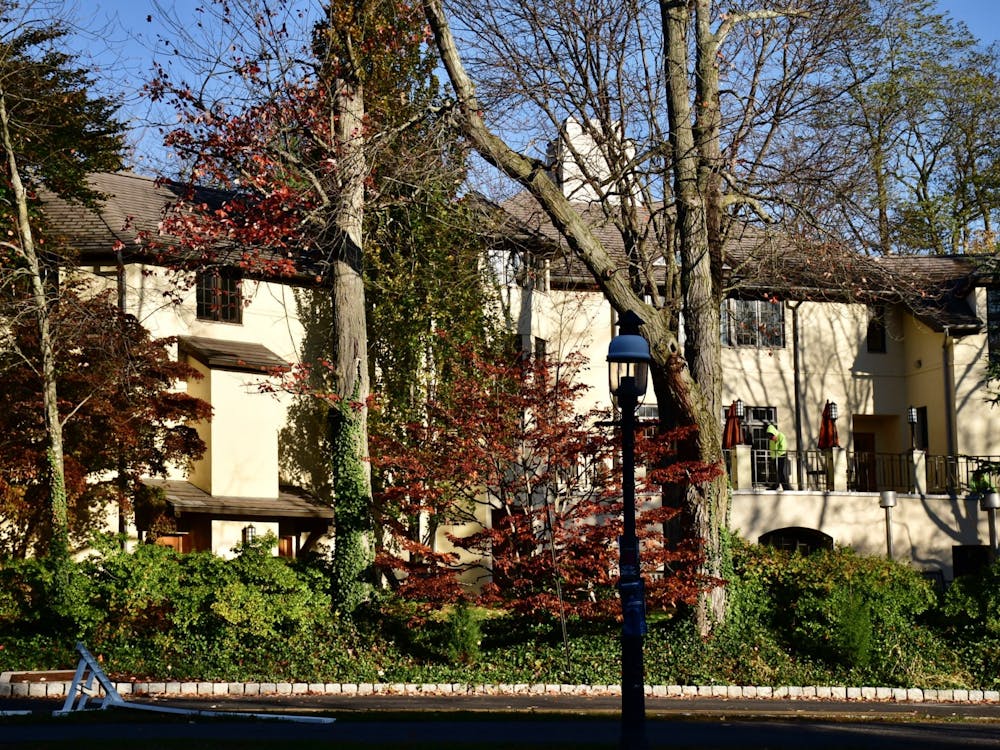Princeton students never seem to fail to dazzle board members of clubs or job interviewers with their impressive resumes and laundry lists of commitments. However, once asked to discuss their interests in the field and to showcase what they know about current national and global events relevant to the position or organization they’re interested in, many students seem to struggle. In an interview for a public health-related club on campus, I found that my interviewees often managed to find some new health policy, a medical society census or national health concern to name-drop. However, when it came time for the interviewee to demonstrate their understanding of the implications of the policy or what their opinions were, I found myself in the midst of a lot of awkward standstills.
This is a fairly troubling aspect of Princeton’s culture. We’re supposed to be informed students, training to be contributing members of society and perhaps even leaders of tomorrow. However, it seems as though many of us are only equipped with a few buzzwords and cultural phrases that seem to imply that we know more than we do — enough to get us through a job interview but not enough to contribute to the academic community as insightful and well-informed scholars. How often do we see students picking up a copy of The New York Times or Washington Post alongside The Daily Princetonian, if they even choose to pick up a newspaper at all? How often do we see sporadic debates about culture, religion and politics outside of Whig-Clio and other similar student organizations?
In her Oct. 9column, “Skip the skimming,” Prianka Misra rallies for more sincere learning and an appreciative, rather than half-hearted, approach to our education at Princeton. Bad — albeit useful — habits such as skimming are only further exacerbated by huge workloads of reading and writing. What ends up happening is that students become experts at surface learning. Regrettably, students who are capable of developing insightful, detailed discussions on a focused topic, ranging from the philosophical to the mathematical, are repeatedly exposed to “condensed and watered-down versions of what we really should be learning.”
You would think that many of us would be frightened at the prospect of going through so many courses and semesters here at Princeton without contributing anything substantial or meaningful to the conversation, but I rarely witness students stressing over this. Instead, I see students come unglued when they talk about the amount and difficulty of work that professors have assigned. They seem to spend hours during evenings and weekends cramming facts and figures with impressive speed. But to what end? To forget everything they’ve memorized the second the exam timer stops or the moment they leave the test-taking room? This excuse of “too much work” is not a legitimate scapegoat for not knowing other things beyond the scope of Princeton.
If we excuse ourselves for knowing less than we should, then we prevent ourselves from doing as much as we should given the resources and opportunities that have been made available to us. Last year I attended a conference for a national organization with two other student representatives from the Princeton chapter. At the conference, I felt embarrassed. Not only did I not know as much about the organization, its history or mission as students from other universities, but my chapter also didn’t have as impressive a portfolio of contributions as many of these other university chapters. While they were churning out donations in the $20,000-30,000 range for their partner organizations in impoverished countries, my chapter seemed to struggle to reach $2,000. Other chapters had made strides in implementing grassroots health programs and consulting on local legislation reform, while we were still trying to get our peers at Princeton interested in what we do. All I could do was wonder why. For a university with such prestige, such an abundance of resources and expert professors, where does this inability to participate and contribute come from? And is it really inability, or is it indifference, apathy and perhaps even a bit of irresponsibility? Do we make allowances for ignorance and inaction by blaming the idea of a closed-off Princeton bubble? Do we claim that we have too many assignments to keep up with daily news or do something influential and worthwhile?
We should be concerned when students from “prestigious” universities such as Princeton start using prestige to place themselves at a higher standard and come to the conclusion that they don’t need to prove themselves, whether through knowledge or action. All this belief results in is action initiated by students who don’t believe that their university title should afford them any excuse from doing real work or making a real difference.
Maintaining a pseudo-intellectual facade should be one of our greatest fears while we’re here. Perhaps the only way we can prevent this from happening is through recognizing that what we don’t know doesn’t reflect badly on our image of prestige and intelligence. It makes us available to receive knowledge that is both deep and accurate, so that when the time comes for us to do something, we won’t just be pulling buzzwords and blanks.
Isabella Gomes is a sophomore from Irvine, Calif. She can be reached at igomes@princeton.edu.







